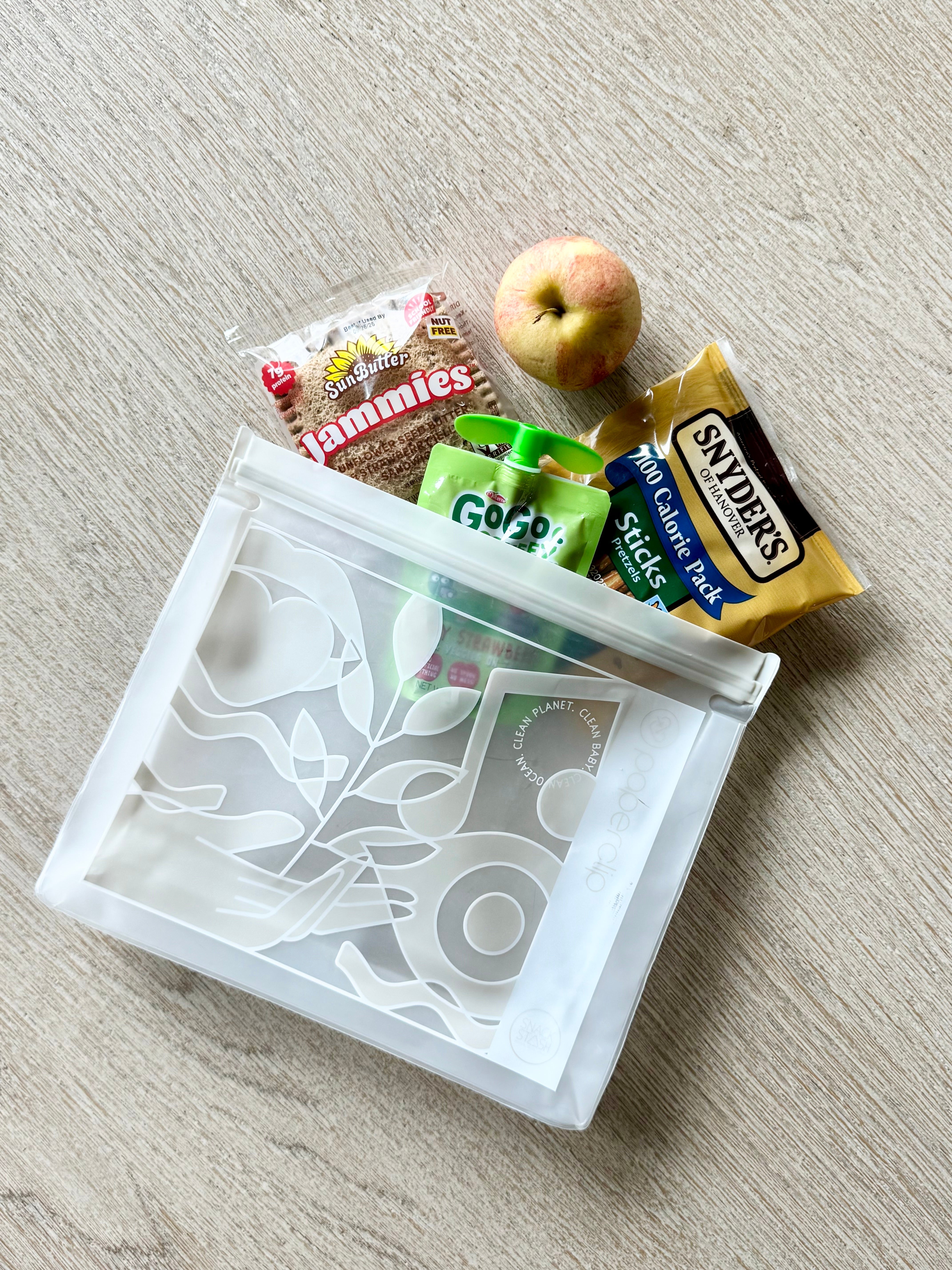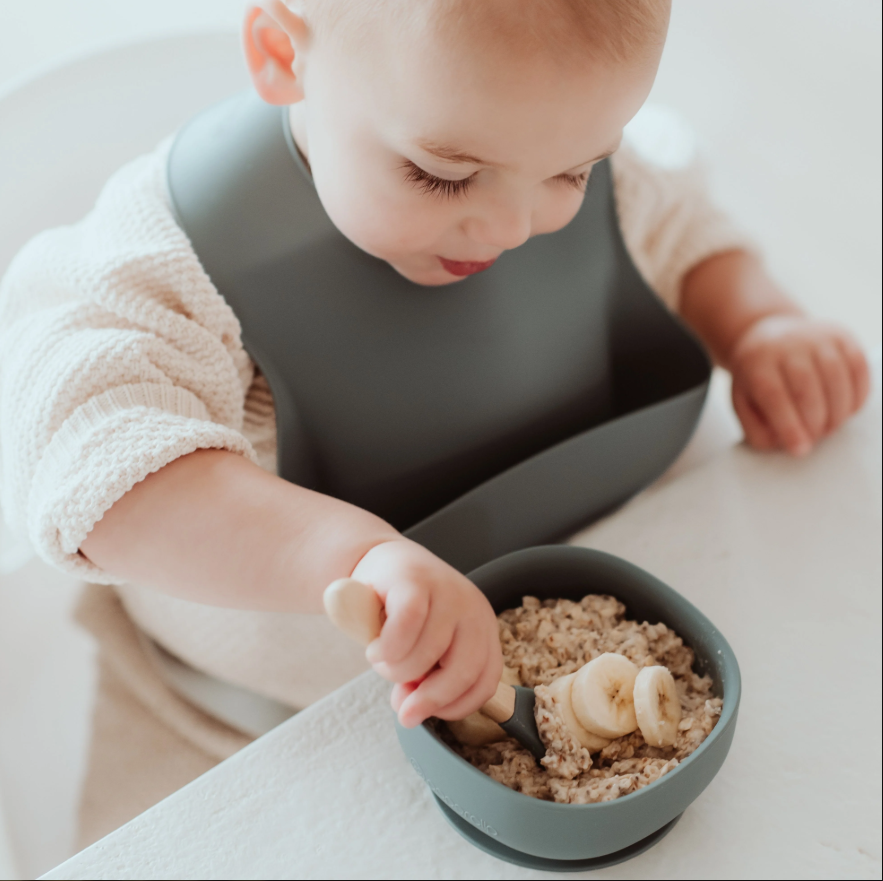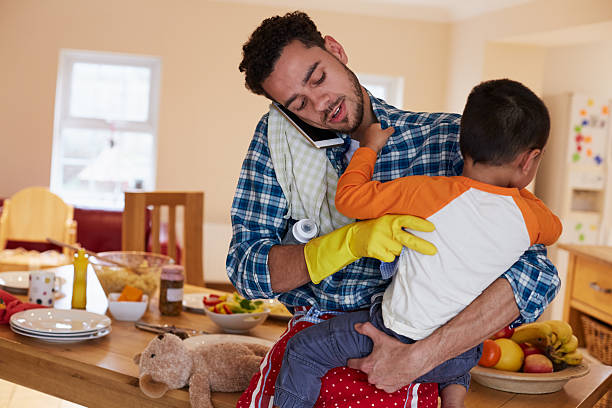It can be very frustrating for parents when a baby won't stop crying. You've tried everything, and it's been hours, and your baby is still crying. Why won't they stop? What are you doing wrong?
Not to worry! We're going to break it all down here in this guide and identify why your baby just won't stop crying and what to do to help soothe your little nugget.
Why Won't My Baby Stop Crying?
Babies have no way to communicate with you other than by crying. It can seem like an endless wave of tears on a daily or hourly basis, but the problem is that there are so many different things your baby might be trying to say.
One minute they're hungry. The next, they have gas. Then, they've made a mess in their diaper and need a change. When everything sounds like an ear-piercing shriek, it's easy to throw up your hands in frustration. But once you learn what they’re trying to tell you, the crying will stop, and your sanity will return.
Unlike adults who have learned to control their reactions based on the severity of the situation, babies don't know any better. A little bit of discomfort from an itchy shirt tag or the fact that their toy is just out of reach is just as terrible as something more severe like a fever.
Babies are human beings with thoughts and feelings that they desperately want to tell you about, and you'll have to be willing to go through each idea when your baby is crying until you find the right answer. As frustrating as that is for you, imagine how your baby feels!
Hunger
One of the most common causes of crying is hunger. This is usually at the top of people's list that they check for when their baby is crying, so this probably isn't breaking news. Offer the nipple or the bottle, especially in the middle of the night when babies often get hungry and expect something. Your doctor will probably have recommended trying to get them on a feeding schedule, so you'll know when hunger is the reason for the cries. If you're out and about, make sure you have some bottles on hand, so you can give them what they need as quickly as possible.
Soiled Diaper
Just because you don’t smell it yet doesn't mean your baby has a clean diaper. Urine doesn't necessarily have the stench of poop, but it's still wet and makes your baby feel uncomfortable. After all, you wouldn't want to spend a lot of time in wet pants, would you? If your baby is crying, always have your diaper bag handy for a quick change.
Boredom
Boredom in a baby is challenging to gauge and should be assumed after checking the physical needs. If it isn't time for a nap, your baby probably just wants to spend time with you and be stimulated by the world around them. Be careful not to stimulate them too much or if it's close to nap time since they can have trouble going to sleep afterward, but babies need a lot of love and care.
Sometimes, all they want is to be held, even if you're not otherwise interacting with them. Try using a strap carrier to carry your baby around the house with you and still leave your hands free for chores, groceries, or holding a good book when you want to put your feet up and relax.
Your baby might decide that just being close to you is enough and go to sleep while your body's natural motions gently rock them and remind them of being in the womb.
Sleepiness
Even when they're exhausted, sometimes babies refuse to sleep. The fact that they aren't sleeping makes them cranky, and they start crying, decreasing the chance that they'll fall asleep.
Sometimes babies can exhaust themselves, and if you wait a little while, they'll cry themselves to sleep, but there are some faster alternatives to try like:
- Lowering the temperature of the room
- Turning on a white noise machine
- Rocking your baby
- Singing to your baby
Soothing Strategies
Babies are easily overstimulated and overwhelmed by the world, which makes sense if you think about it. They're completely helpless and can't even communicate what's wrong. There might not be anything actually wrong, but they just don't know how to cope with everything happening around them, so they cry. If you've made sure that your baby's needs are met, but they're still crying, try one of these soothing strategies to help them calm down.
- Take a walk
- Go for a ride in the car
- Sing some lullabies
- Try pacifiers or other security objects (a favorite toy, blanket, pillow, etc.)
- Swaddle in a soft blanket
- Play soothing music
- Run a warm bath
- Turn on a white noise machine or something similar
- Give a belly or back rub
- Bring the lights down low or entirely off
They Just Need to Cry
A lot of parents struggle with the idea that sometimes babies just need to process their emotions or soothe themselves by crying. If you're at your wit's end and your baby is still crying, it's perfectly fine to set them down in their crib and walk away.
Sometimes, you just need to let them cry for a while and learn to self-soothe. It can be helpful for your own mental health just to stop what you're doing and come back in a few minutes when you've had a chance to take a breath yourself. You may return to a happy or sleeping baby.
When to Talk to A Doctor
Plenty of parents are tempted to blame their baby's non-stop crying on a medical condition. Parents bring their crying babies into the emergency room every day, hoping that a doctor can give them some advice or medicine if it will just get their baby to stop crying. However, most of the time, there isn't anything a doctor can do. Emergency rooms are loud, crowded, and bright - everything that an already upset baby does not want to deal with.
Plus, their immune system is still developing, and you might accidentally expose them to certain diseases or germs that they're not ready to handle. Unless your baby displays one of the following changes, you might end up doing more harm than good by going to the emergency room.
Your Baby Has A Fever
If your baby is under three months old and has any kind of a temperature, seek emergency medical attention immediately. When they are older than three months, a very low-grade fever might not be unusual if they have developed a cold, but if your baby has a temperature of more than 100 degrees, call your pediatrician. They might have developed an infection and need a course of antibiotics.
Most importantly, don't panic. Ear infections are very common in babies, although it may mean that your baby will keep crying for the better part of a week.
Your Baby's Behavior Suddenly Changes
If your baby has spent the first two or three months of their life relatively quiet (for a baby) and suddenly begins wailing non-stop, that might be a sign that something is wrong. Generally, this means that they have started teething, and unfortunately, that is a painful process. But it might mean that there is a deeper issue, and it's always better to be safe than sorry.
Your Baby Has Other Symptoms
There are plenty of reasons why your baby might need medical attention, but crying isn't always one of them. However, if you also notice a significant rash, trouble breathing, or vomiting, that might be a sign that your baby has developed an allergy. Always check your baby for symptoms that don't seem right or are unusual for your child.
Your Baby Won't Eat
If your baby has continued to refuse to eat for eight hours, it's time to talk to a doctor. Even if they started crying for a different reason, babies' digestive systems work much faster than adults, and they need to be fed frequently. If your baby is refusing the nipple or bottle and continues to do so when other physical needs have been met, there might be something medically wrong.
In Summary
Endless crying can really wear a new parent down, but just remember that under most circumstances, babies don't cry for no reason. They need something from you, and until they can do more for themselves, you are all they have. Even when you're about to pull your hair out, keep trying soothing strategies and checking all of their needs.
Eventually, you'll find whatever is bothering them. And the faster you provide a remedy, the faster you’ll return to the wonderful world of your baby’s happy smiles and cooing that you love so much!
Sources:
Colic - Diagnosis and treatment | Mayo Clinic
Popular Articles
Help! My Silicone Tastes Like Soap!
Back-to-Preschool, the Eco-Friendly Way: 7 Simple Swaps for Greener Mornings
If you're looking to make mornings smoother and more sustainable, here are 7 simple, eco-friendly swaps perfect for preschoolers and the grownups who love them.
Read More






